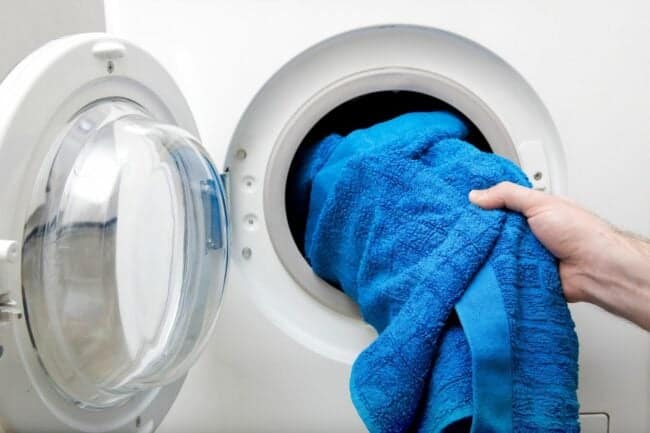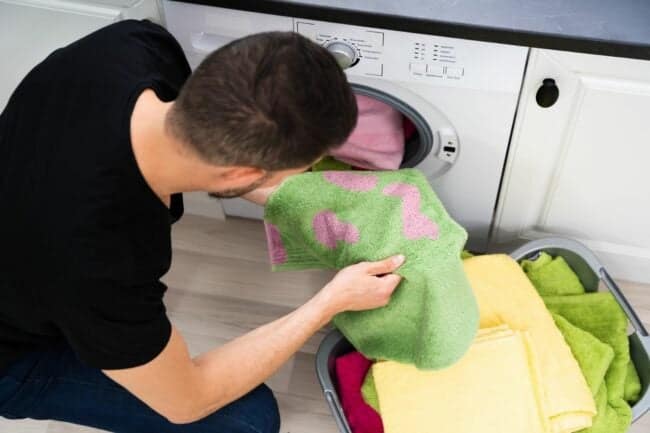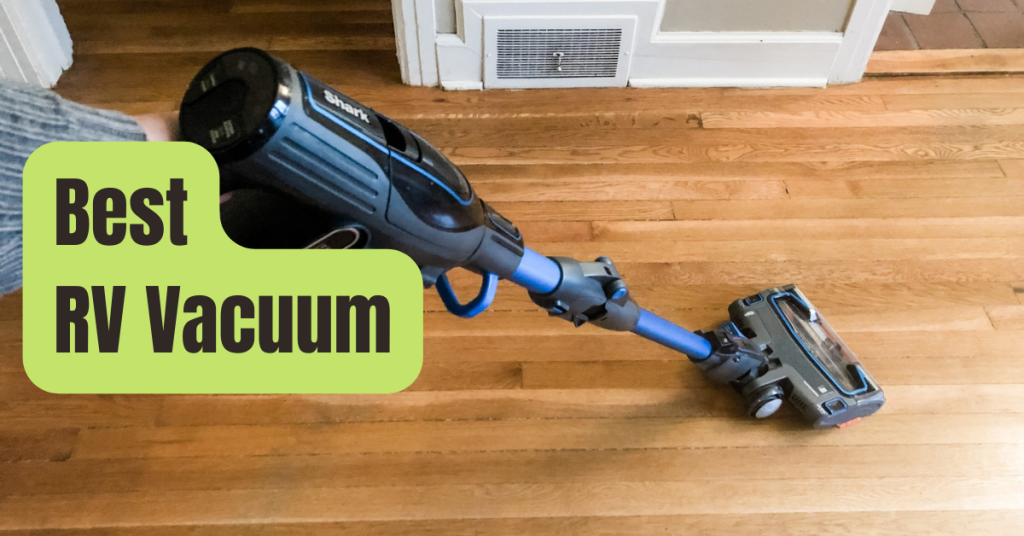How Long Should A Washer And Dryer Last? They Chug, Spin, Wring, And Tumble.
Q: What is the lifespan of dryers? What about the lifespan of washers? I’m trying to determine if I should bargain for a lower price on the house I’m thinking about buying since some of the appliances are outdated and I may need to replace them.
Although I believe the dryer to be roughly the same age as the washer, it is a special source of worry.
A: It’s a smart idea to consider the age and worth of appliances when you’re purchasing a house, and even after you’ve done so, you should continue to do so to avoid having to replace all of your appliances at once.
While they may last longer with special care, you should anticipate a washer to last for around 10 years and a dryer for 13, with proper maintenance.
You can ask the seller to purchase a one-year home warranty to protect you should the appliances fail earlier than you anticipate, you can buy a home warranty on your own, or you can hope for the best and begin saving for new appliances now so that you will have them when the time comes to replace them.
How come washers and dryers break down? The strain put on a washing machine’s motor as well as its ongoing contact with water may cause corrosion, breakage, and the accumulation of dirt and mold.
Dryers struggle with problems with venting and excessive heat for extended periods of time.
The appliances both operate many times a day, especially in a busy family household, thus there is very little downtime for both devices as they work nonstop.
The fact that most individuals seldom, if ever, consider cleaning or maintaining a washer and dryer is what has the largest negative impact on its longevity.
You may extend the useful life of your appliances by taking quick, easy measures.
In General, Washers And Dryers Endure 10 To 13 Years.
Although washers put in a lot of effort, a high-quality model is designed to manage even the most difficult washing situations for roughly ten years.
Regardless matter whether the dryer is fueled by gas or electricity, dryers last a little bit longer—about 13 years—because they don’t have to deal with as much water as washers do.
When you initially purchase a new set, this doesn’t seem like a long time, and when you swipe your credit card, you may wonder, “How long should a washer and dryer last?” However, when you think about it, washers deal with water entering, splashing about, and draining, which means there is a significant risk of corrosion.
Heavy loads of wet clothes and linens are slogged about at high speeds by the engine, which also removes the grit and grime from them.
Dryers can survive extreme heat, buttons and zippers crashing against metal grate, abandoned pocket contents melting against inside, and fiber clumps being pulled through filters.
An average longevity of between 10 and 13 years is rather remarkable when you consider the damage these causes produce.
Nevertheless, there are things you can do to increase the lifespan of your appliances.

You Can Increase The Life Of Your Washer And Dryer In A Variety Of Ways.
Because they serve various purposes, washers and dryers go through different kinds of wear and strain.
What is the lifespan of washing machines? Even though the typical lifetime of a washer is ten years, you may extend its life by doing the following steps.
- When installing the washer, level it, and occasionally check its level. When washers aren’t level, the inner tub spins unevenly and has the potential to skim over the edge of the outer tub, creating friction and corroding the metal. You’ll hear a nasty clunking sound if the washer is really off of level, but even a minor imbalance might result in excessive wear. To ensure that the machine is level across all planes, choose or construct a level surface before installing it.
- Regularly inspect the hoses. Washing machines contain a lot of water, which is the enemy of machinery. Regularly check hoses and connections to make sure they are tight and leak-free. You may also want to think about shutting off the washer’s water while it’s not in use to lessen strain on the hoses.
- Don’t overburden. It doesn’t follow that you should put a large basket of clothes in the washing just because you can. Wet garments weigh a lot, so loading the machine to the brim will make it work harder and put stress on the engine. To find out what the recommended load is, consult your user’s handbook and abide by its instructions.
- After each usage, let it air dry. Even with the greatest washer manufacturers, mold is a common issue with front-loading washers, and it may even appear in top-loading units if the tub doesn’t drain fully. In order to decrease the chance of mold growth, leave the washer’s door open in between loads. Mold development and odor may be greatly reduced by routinely cleaning the rubber gasket on front-loaders that closes the door.
- Observe the detergent. A load of filthy clothing doesn’t need adding additional detergent, and doing so makes the washer work harder and use more water to rinse the load. Use just the suggested quantity of detergent and make sure it’s the right one for your washer, particularly if it’s a high-efficiency type. Additionally, regularly wipe out the dispensers for the detergent and fabric softener since too much residue may cause excessive suds and increase wear on the machine.
In order to increase their lifespans, dryers need varied care.
These methods may be used to increase a dryer’s lifespan and answer the question, “How long should dryers last?”
- Keep things tidy. Detergent or pretreatment chemical residue that is present in wet clothes may come off the dryer’s walls and accumulate there. The accumulation may constrict the perforations in the dryer drum and make it harder for air to move through. It can also melt off or chip away and block the dryer vent. The buildup can also rub off on clothes, discoloring it. Periodically wipe the inside of the drum clean with a moist cloth bathed in mild soap and water, then let it dry.
- Remove all of the lint. In actuality, the lint filter has to be cleaned after every load of washing. The dryer won’t be harmed by running one or two additional cycles, but they will make it work harder. Anything more than that poses a major fire danger and threatens to seriously damage the dryer itself.
- The dryer hose should be examined, and maybe replaced. The thin, wavy foil dryer hose that runs from the rear of the appliance to the venting point outside is something that most of us are acquainted with. This is often used, particularly in settings where flexibility is necessary. Flexible hose, however, does not stretch firmly (unless it is overextended, which will increase the likelihood that the hose will pop off the dryer). As a consequence, dust and lint may collect at the hose’s lowest point, ultimately clogging it and posing a fire risk. Regular hose cleaning will help, but this specific problem will be resolved by switching to a hard metal hose. Even though some lint will always get through the filter, cleaning out the rigid hose is now simpler and more effective.

However, Problems With Washers And Dryers Are Usually Discovered During The First Five Years Of Ownership.
You may anticipate a honeymoon phase after the purchase of a washer and dryer lasting around 5 years, according to a survey conducted by Consumer Reports.
According to study respondents, over 70% of washers and 80% of dryers last for the first five years before requiring significant repairs or replacement.
The appliances may continue to function effectively and be trouble-free far beyond the first five years with proper care and maintenance.
Some Of These Typical Problems May Be Resolved By A Skilled Owner, While Others Need For The Skills Of A Professional Appliance Repairman.
Many issues that might occur with a washer and dryer can be fixed in one of two ways: by using common sense, which the owner should do initially, or by using more complex techniques that call for training and expertise.
power-on issues? Before hiring a repairman, be sure no breakers have been tripped by checking the breaker box.
‘Walking’ of the washer across the floor? To establish a level foundation, level the feet or construct a level platform out of plywood.
Leaks, serious drainage issues, and washers that won’t agitate or fill generally need a repairman since it’s possible that the electronics or pump system is faulty, or that an object like a pencil or sock is lodged in the machine.
If you don’t exactly know what you’re doing, it’s better to let a certified expert go in there to address a problem since the system that handles water is so near to the electrical components.

The Cost Of Fixing Washers And Dryers Might Be High, But A Home Warranty Can Greatly Lower That Cost In Addition To Paying For The Repair Of Other Systems And Appliances In The House.
If you often find yourself asking questions like “how long do washing machines last” and “how long does a dryer last,” then your appliances could be reaching the end of their useful lives, or they might not.
Professionals with experience in appliance repair may perform miracles with inexpensive components if they know what to do with them and how to install them.
What is pricey is the work required to open up the machine, locate the issue, remove the faulty component, and replace it with a new one.
Despite the poor quality of the YouTube video you discovered, many homeowners still attempt to modify their washers and dryers in ways that are not truly intended.
Why? Because it costs money to call for repairs, and you never know for sure how much until the issue is identified.
Avoiding expert maintenance or attempting to DIY complex electrical and plumbing components results in bigger (and more costly) issues.
The expense of maintaining, repairing, and replacing the majority of home systems and appliances is covered by a home warranty, which is a service contract coverage that you’ll pay for on an annual basis.
The policies are an addition to your homes insurance and come in a variety of formats (you may opt to cover just whole-home systems, only kitchen and laundry appliances, or a combination, and there are add-ons available in most circumstances).
The warranty is particularly designed to cover damage to an appliance from normal use and wear.
You will pay that flat cost each time you need repair service for a covered item (including washers and dryers) so that the repairman may visit your house, diagnose the issue, and carry out the necessary work.
The specialist will advise replacement if there is no hope of repair, and the warranty will pay for a computer with comparable price and functionality.
This may be a terrific alternative, especially if your appliances are older: for no extra expense (or a little amount, if you’re looking for a major update), you can acquire a new, more effective machine that will reduce your need for water and energy.
This coverage is offered by a home warranty from one of the finest home warranty providers for all covered appliances as well as, if you’ve chosen, for whole-house systems including plumbing, electricity, and HVAC.
A home warranty will pay for itself if you need to replace even one of your washing machines, and it will help you plan your budget for repairs and replacement.
Consider getting a home warranty to safeguard your investments if you’re thinking “How long do washers and dryers last?” and recognizing that the end for your appliances (and other equipment) is coming sooner than you’d like.










